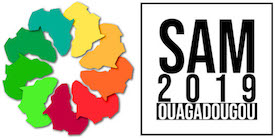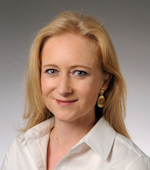This interview is part of a sponsored series on SAM (the French acronym for African Microfinance Week), a major conference dedicated to financial inclusion in Africa. The next SAM will take place October 21-25, 2019, in Ouagadougou, Burkina Faso!
MicroCapital: Your Highness has stated that microfinance “awakens the creative forces…enabling the poorest to regain their dignity and to bring about solutions for their own needs.” Is this why Your Highness is so involved in microfinance?
Your Highness has stated that microfinance “awakens the creative forces…enabling the poorest to regain their dignity and to bring about solutions for their own needs.” Is this why Your Highness is so involved in microfinance?
Grand Duchess Maria Teresa (pictured below): I would like to quote Professor Muhammad Yunus, who said that “Microcredit is, above all, a tool that unlocks human dreams and helps even the poorest and most unfortunate people on this planet achieve dignity, respect, and meaning in their lives.”
I have been involved in microfinance ever since I met Professor Yunus, because, through him, I discovered the importance of trusting the poorest of the poor, without conditions. By that I mean trusting in their honesty, in their creativity, in their capacity for hard work, and in their demand for dignity. It is important to push back against the idea that you are only trustworthy if you are backed up by finance, if you have collateral to put on the table. I would almost go so far as to say



 Second, EMW is particularly interactive. We don’t see value in serial presentations of projects or products; all workshops and plenaries are designed to be provocative, interactive, and to stimulate debate and discussion. Third, the conference is the culmination of the annual European Microfinance Award; and each year there is a stream of sessions on the Award theme, which for 2019 is Strengthening Resilience to Climate Change. Fourth, EMW has an especially diverse attendee group, in terms of organisation types and home countries. It’s a truly remarkable breadth of stakeholders. Finally, we take great efforts to
Second, EMW is particularly interactive. We don’t see value in serial presentations of projects or products; all workshops and plenaries are designed to be provocative, interactive, and to stimulate debate and discussion. Third, the conference is the culmination of the annual European Microfinance Award; and each year there is a stream of sessions on the Award theme, which for 2019 is Strengthening Resilience to Climate Change. Fourth, EMW has an especially diverse attendee group, in terms of organisation types and home countries. It’s a truly remarkable breadth of stakeholders. Finally, we take great efforts to